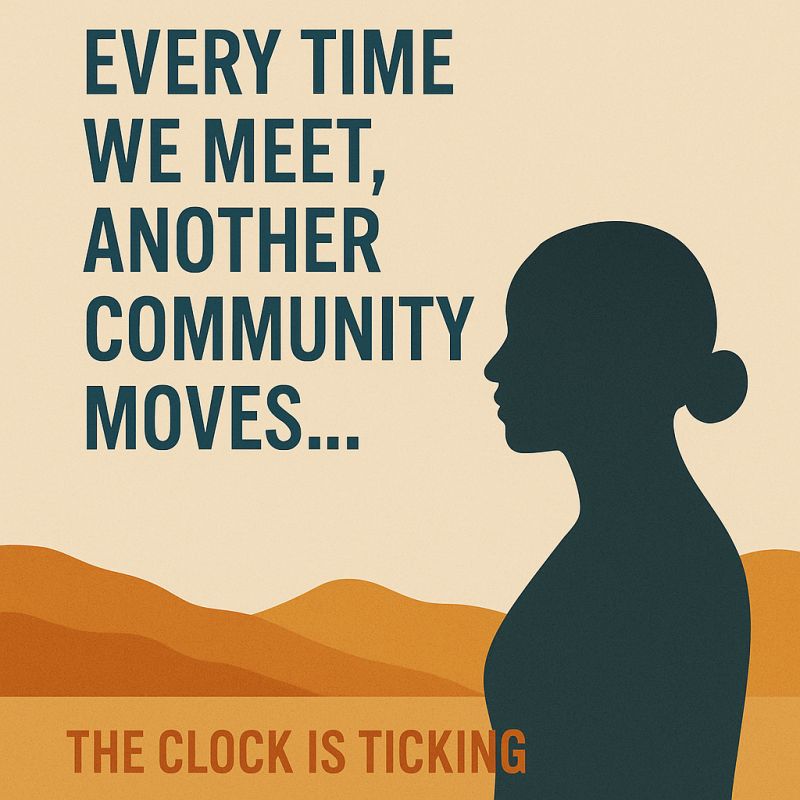
On 9 October 2025, African countries convened in Entebbe, Uganda, to reaffirm their collective commitment to addressing climate-related mobility through concrete, action-oriented approaches under the Kampala Ministerial Declaration on Migration, Environment and Climate Change (KDMECC).
This landmark gathering, the 7th meeting of the Expert Working Group (EWG), brought together representatives from twenty-five African countries, alongside Regional Economic Communities (RECs), youth leaders, and technical experts. The meeting marked another step in advancing Africa’s leadership on the intersection of climate change, migration, and governance.
The timing could not have been more urgent. Across the continent, the effects of climate change are no longer theoretical or distant. They are unfolding in real time, drying rivers, flooding homes, displacing families, and reshaping livelihoods. As delegates deliberated in Entebbe, countless communities elsewhere were already on the move, not by choice but by necessity.
The KDMECC process, launched in 2022, represents Africa’s home-grown framework for confronting the intertwined realities of climate change and human mobility. Its premise is simple yet transformative: people on the move due to environmental and climatic pressures deserve protection, planning, and pathways to resilience. The EWG was established to translate the political commitments of the Declaration into practical measures aligned with continental and global frameworks such as the African Union Climate Change and Resilient Development Strategy and Action Plan (2022–2032), the Global Compact for Migration (GCM), and the Paris Agreement.
While frameworks multiply, the real challenge remains turning declarations into delivery. The Entebbe meeting aimed precisely to accelerate that shift, focusing on implementation mechanisms, financing, and cross-sectoral collaboration. Participants explored how to integrate climate mobility into national adaptation plans, enhance data systems, and promote gender-responsive approaches that recognise the disproportionate impact of climate shocks on women and marginalised groups.
Yet, as one delegate observed, the climate is not waiting for policy timelines. Every delay has a human cost. The conversations in Entebbe underscored a recurring tension between policy speed and human speed, between the pace of governance and the urgency of lived experience.
Across Africa, entire communities are living the future policymakers are still planning for. In the Sahel, prolonged droughts have forced pastoralists to travel farther in search of pasture. In Mozambique and Malawi, cyclones have repeatedly destroyed homes and livelihoods, creating cycles of displacement and recovery that test local resilience. Along the Horn of Africa, erratic rainfall patterns have displaced millions and exacerbated competition over resources. For many, mobility has become both a coping mechanism and a survival strategy.
The Entebbe meeting acknowledged this complexity. Climate mobility is not merely a story of movement; it is a story of adaptation, innovation, and agency. Women are leading quiet revolutions of resilience, reorganising livelihoods, developing savings groups, and creating local safety nets when formal systems fall short. Youth networks are emerging as drivers of awareness and green entrepreneurship, turning vulnerability into vision.
Still, these stories often unfold in silence, away from policy tables. They reveal a fundamental truth: climate mobility is not waiting for declarations. It is already redefining how and where people live, how they relate to land, and how they imagine the future.
The Entebbe discussions offered reasons for cautious optimism. Countries reaffirmed their commitment to align national frameworks with KDMECC principles and to strengthen coordination through the African Union Commission (AUC), IGAD, and other regional bodies. There was growing recognition that solutions must be cross-border and cross-sectoral, linking ministries of environment, migration, agriculture, and planning.
Yet many participants acknowledged persistent gaps: inadequate financing, fragmented data, and the difficulty of integrating mobility into adaptation and development plans. Without sustained funding and political will, even the most ambitious frameworks risk remaining aspirational.
Ultimately, the meeting’s greatest lesson was not about technicalities, but about time. Governance structures move in cycles of plans and reviews; climate change moves in seasons and shocks. Policymakers spoke of the need to shorten the distance between early warning and early action, between analysis and implementation.
The refrain that echoed most powerfully from Entebbe was simple: Every time leaders meet, another community moves, not by choice but by climate. The urgency of this reality demands that governments, partners, and researchers act with the same immediacy that communities themselves have been forced to adopt.
Africa’s leadership on climate mobility will be measured not by the number of frameworks adopted, but by the number of lives protected, opportunities created, and futures secured. The challenge is to ensure that policy timelines match human timelines, that governance learns to move at the pace of change.
Because climate does not wait. And neither should we.
